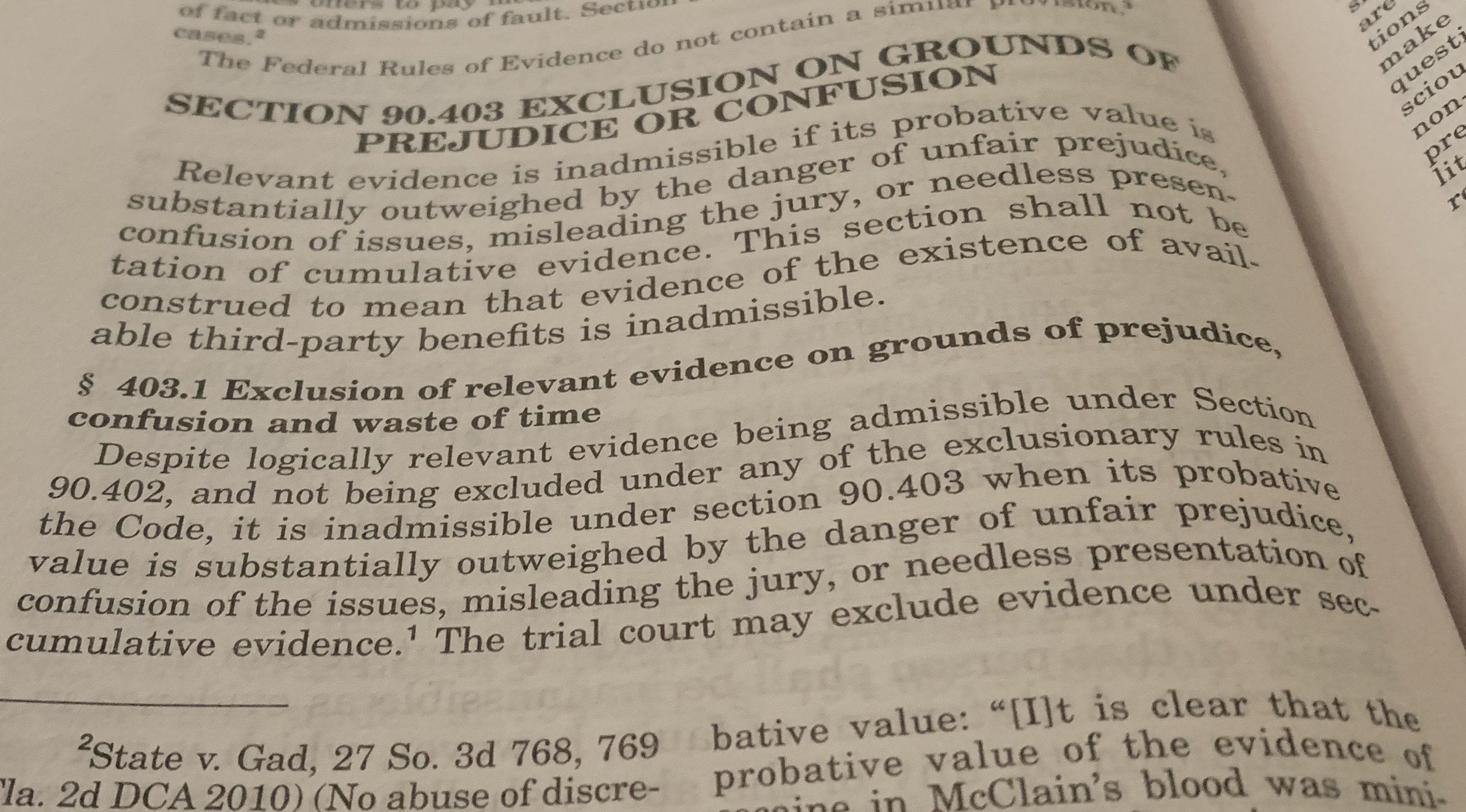
Motion In Limine
A “Motion in Limine” is a motion filed by either side to exclude evidence before the trial begins. This type of motion is similar to a Motion to Suppress in that it seeks to exclude evidence from the trial, but differs from a Motion to Suppress on the reasons for exclusion. A Motion to Suppress is almost always aims to exclude evidence based upon a violation of one or more Constitutional Rights while a Motion in Limine aims to exclude evidence based upon the Florida Rules of Evidence. The Florida Rules of Evidence are codified under Florida Statutes, Chapter 90. Because there are many rules of evidence and because they work in conjunction with one another, it is necessary that a lawyer fully understand the facts of the case before he or she can effectively assess whether evidence will be admissible in a trial or whether that evidence can be excluded.
Common Motions in Limine seek to exclude evidence on the following grounds:
Does not tend to prove or disprove material fact; 90.401
Is unfairly harmful to other side and proves little; 90.403
Confuses the material issues; 90.403
Is misleading to the jury; 90.403
Is cumulative and unnecessary; 90.403
Relates to Bad Character when character is not at issue; 90.404
Relates to prior bad acts, wrongs, or crimes; 90.404
Statements are protected by a privilege; 90.501-09
Witness does not have personal knowledge; 90.604
Improper opinion testimony; 90.701
Unqualified Expert opinion; 90.702
Expert methods are unreliable; 90.702
Hearsay; 90.802



